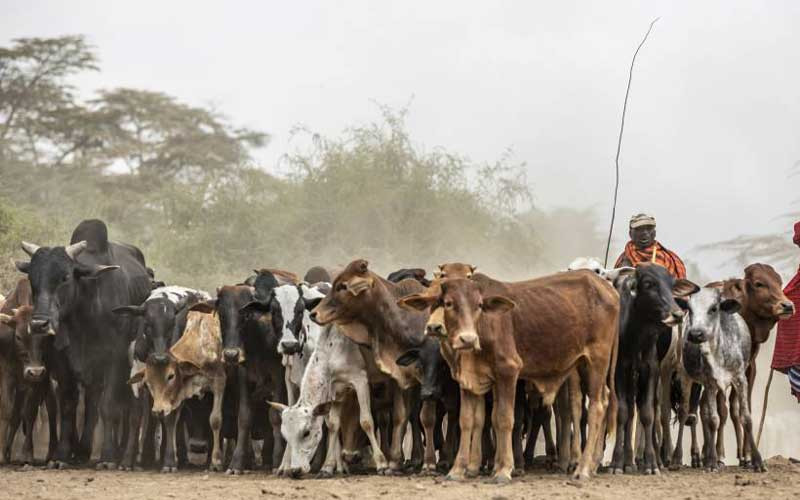
LIVESTOCK specialists have expressed concern over lack of financial support to farmers at a time Zimbabwe is facing an El Nino induced drought.
The country recorded a surge in the death of livestock, especially cattle, just before the onset of the rain season in December as pastures and water sources became depleted.
Zimbabwe is expected to record below, to average rainfall this season and there are fears farmers could lose their cattle, goats, pigs, and chickens due to shortage of food and water.
Livestock and Meat Advisory Council economist Reneth Mano told Standardbusiness that some farmers were now selling their livestock to buy drought survival rations.
“Farmers privately invest in cattle because cattle production as a family business is indeed a very profitable venture,” Mano said.
“Cattle-owning families in every district are the well-off families in Zimbabwe’s rural districts and are, therefore, materially capable of selling only a few of their cattle or goats to buy drought survival rations of cattle feeds and water.
“This will be done to save the rest their cattle from drought.”
Experts say Zimbabwe’s domestic credit and financial markets are severely under-developed to support livestock farmers
- Building narratives: Charlestone School choir nominated for regional award
- Wedza North MP’s days ‘numbered’
- AMH investor forum to explore Zim opportunities
- How Uganda outsources violence to stay in power
Keep Reading
“The majority of commercial-oriented newly resettled black farmers, who engage in cattle farming as a business continue to lack access to appropriately structured cattle production credit facilities and actuarially fair cattle insurance policies,” Mano said.
“These domestic financial market failures and the absence of a commercially well-structured functioning cattle grazier scheme providing short-term emergency cattle-grazing facilities for a fee to farmers in distress tend to put pressure on the government to offer emergency cattle rescue services.”
He said with appropriate policy incentives, cattle ranchers and private cattle insurance companies could provide cattle rescue services and grazing facilities as profitable business ventures.
Mano said such ranchers and insurance firms would target cattle farmers in drought-prone districts as primary customers and the government and non-governmental organisations as secondary clients.
Livestock specialist Mhlupheki Dube said the industry was in grave danger as a result of the looming drought.
“We are in a very bad situation in terms of drought and the El Nino situation is going to affect the livestock industry in a big way,” Dube said.
“In fact, it has already started.
“There are poverty deaths across most of the districts especially in the agro-ecological regions 4 and 5; that is Matabeleland region and the south east of the country.
“I may not have the specific figures, but a lot of poverty deaths have been recorded, especially in Matabeleland North, part of the Lupane and Nkai districts.”
He said the economic consequences of livestock deaths were massive.
“Livestock is a kind of investment where most people have drifted towards investing in livestock because it is an inflation-proof type of investment,” Dube said.
“Our economy has been struggling with inflationary pressures where one can invest in a certain business and can actually lose that investment due to inflation.
“But, with livestock, the animals will multiply, and they can also resist inflation.”
Ministry of Lands, Agriculture, Fisheries, Water and Rural Development permanent secretary Obert Jiri said the heavy rains across the country had brought some relief.
“When it rains it means that the grass will then grow, and the livestock will get water,” Jiri said.
“Once it rains, the grass starts growing unlike crops which need enough water to a certain stage for growth.
“The livestock were dying before the rains because we did not have enough water.”
He said farmers must take advantage of the situation and stock up for tough times ahead.










